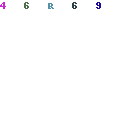SIUE schools, center receive $1 million NSF Grant
A $1 million grant awarded by the National Science Foundation (NSF) will be used to enhance the educational experiences of aspiring math teachers at SIUE.
The NSF grant funds a second Robert Noyce Teacher Scholarship Program for the university, this time in mathematics. A previous grant by the agency funds SIUE students in their path to become secondary science educators.
According to its website, the NSF “is an independent federal agency created by Congress in 1950 ‘to promote the progress of science; to advance the national health, prosperity, and welfare; to secure the national defense…’” In addition, “In many fields such as mathematics, computer science and the social sciences, NSF is the major source of federal backing.”
Sharon Locke, Science, Technology, Engineering and Mathematics (STEM) Center director, Tammy Voepel, professor of mathematics and statistics and Liza Cummings, professor within the Department of Curriculum and Instruction collaborated to submit the grant proposal in the spring.
Locke said they are excited about the grant which combines the efforts of their departments in providing a variety of “excellent programs” to students.
“This program has three different units working together to improve the educational preparation of teachers at SIUE,” Locke said. “All of us [are] bringing each of our units’ strengths…”
The five-year program will assist 24 students majoring in math and pursuing teacher certification with their educational expenses. Students selected on a competitive basis will receive $11,500 for each of their junior and senior years.
Voepel said the program is a great opportunity for students and may encourage more math majors to consider teaching.
“Maybe strong math students will look at this and it will encourage them to think about…education as a career,” Voepel said.
In addition, for each year of the program, four freshman and sophomore students from SIUE and Lewis and Clark Community College will receive $2,500 stipends toward teaching internships at math camps.
The STEM Center will lead the internship program which, according to Locke, gives students the opportunity to “try out teaching” and deliver math outreach programs to the community.
Locke said the grant will also fund the STEM Center in providing equipment for student teachers and developing workshops.
The program, according to Cummings, will enhance the training of Noyce scholars because it provides them additional time and earlier opportunities to observe within classrooms at local schools.
Students will observe teachers within the Belleville, Cahokia, and Highland as well as other school districts which, according to Locke, are categorized as high-needs districts and partners within the program.
After completing the program, Locke said students are required to spend two years for every year they are funded by the scholarship to teach within a high needs school district in the Southwest Illinois region.
Locke said the goal or “big picture” of the Robert Noyce Teacher Scholarship Program is to produce and place highly qualified mathematics and science teachers in school districts that “might have trouble recruiting teachers because of their challenging context.”
The program launches this year.
Filed Under: General CAS Stories • Mathematics & Statistics • Teacher Education












